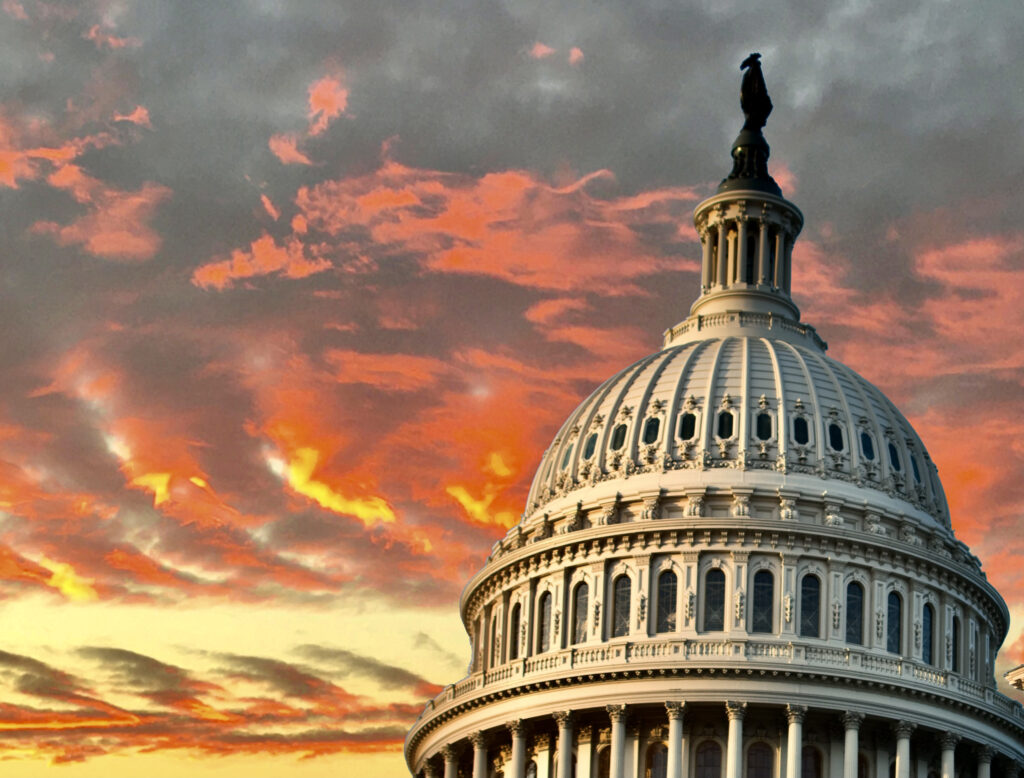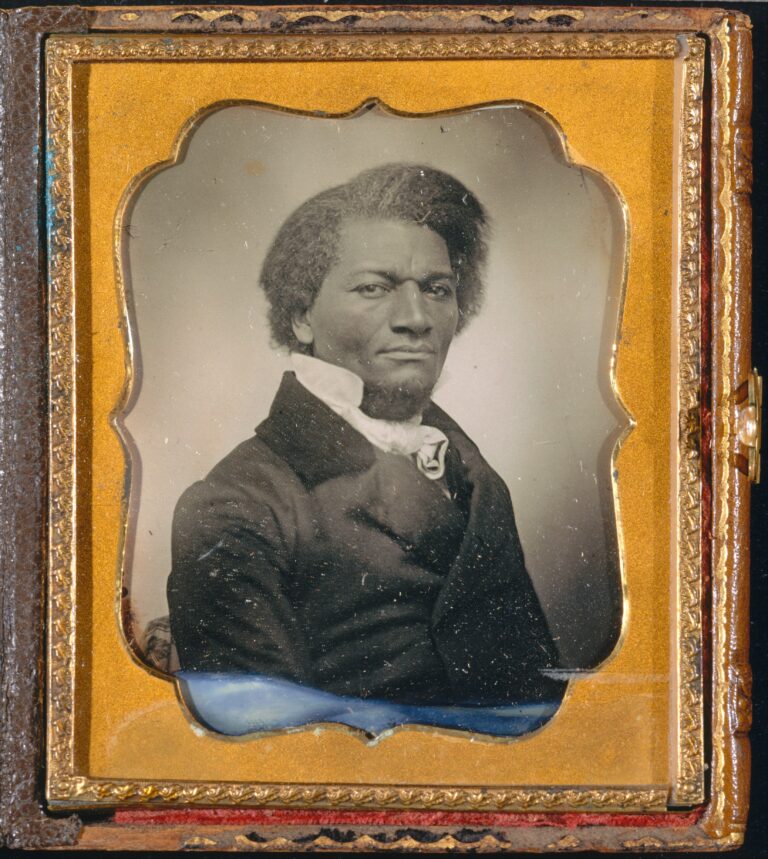The Browning of American Democracy

History of epic proportions happened on October 3, 2023: two monumental events crystallized tensions in the American political landscape that have gone largely unnoticed. Kevin McCarthy was ousted from his position as the Speaker of the House, a historic first. On the same day, in the Senate chamber, Laphonza Butler became just the third Black woman Senator in 247 years of U.S. history. Even more remarkable, she was sworn in by the second Black woman to serve in the Senate, Vice-President Kamala Harris.
Butler and Harris share much more in common. Both attended Historically Black Universities (HBCUs)—Harris is a graduate of Howard University, and Butler is an alumna of Jackson State University. Majoring in political science, both were educated by many of the same Black intellectuals who guided me. This history is all the more ironic because the political players here all hail from the liberal land of California, where race seemingly doesn’t matter. And while most commentary on McCarthy has focused on the clash of personalities and agendas in Republican circles, a closer look at these historic events reveals how race continues to drive political tensions in America. It lies at the heart of the crisis roiling the Congress—and American democracy more generally.
What’s unique about this moment is that, for the first time in U.S. history, the Congressional leadership of a major political party is made up almost exclusively of Black people. This Congressional leadership shift was possible because President Biden has spent the last decade politically aligning himself with Black and Brown people, first as Barack Obama’s Vice President and subsequently in his choice of Kamala Harris as his Vice President. This party realignment reflects the saturation of Black Congressional members, which is another indicator of the browning of America.
What analysis of the McCarthy affair has largely missed is the reality that the current Congressional crisis is very much a reaction to the expansion of Black political representation. Conservative republicans are bent on decreasing the power of their Black counterparts.
Paradoxically, the nomination of a Black Congressman to challenge McCarthy was a key part of this strategy. In early January 2023, 20 Congressional members in the Freedom Caucus voted for Byron Donalds of Florida for Speaker in ballots 4 through 11. This radical faction’s bolstering of Donalds represented support for someone who describes himself as “everything the fake news media says doesn’t exist: a Trump supporting, liberty loving, pro-life, pro-2nd Amendment Black man.” Backing a Black person who white extremists believe they can control is an attempt to soothe their badly hidden racial angst. Meanwhile, the dysmorphia in Donalds’ self-description is an example of what we might call “insulated blackness“: a Black person against pro-Black remedial policies and or disagree with commonly held ideologies about the Black condition, as a result of being shielded from frequent Black experiences, such as racial discrimination. In more colloquial language, it identifies him as subservient and role-playing white-stereotyped black person known as a “handkerchief head.” (We also see this strategy on display when the Republican Party nominated Herschel Walker to run against Senator Rev. Raphael Warnock in Georgia.)
The Republican radicals’ nomination of Donalds had the aim of disguising the openly racist venom spewed by Freedom Caucus members who believe that Whites in America have been loosing power because of the advancements of Blacks. It was also intended to devastate McCarthy because he needed 216 out of 435 votes to win the gavel. He was only able to achieve this through 6 congressional members’ abstention.
The House of Representatives’ structure is designed so that power is dispersed amongst the 435 members, requiring collective and collaborative action. This power struggle presented a complex challenge, to the former Speaker from the inside out. Kevin McCarthy is a Bakersfield, California native, which is in the Central Valley, a conservative bastion in the state of California. This rural area of the state, where half of the US fruits and vegetables are grown, has very conservative voting patterns, which align closely with more notoriously conservative places like Florida. This no doubt contributes to his conservative political ideology that matches closely with members of the Freedom Caucus. McCarthy was the establishment favorite as he was known as a lighthearted guy who could raise funds and work with practically anyone. Yet, it took him a historic 15 rollcall votes to become Speaker of the House in January 2023 due to Trump extremism in his party stripping him with all of the sticks needed to cajole his party back into line.
With a majority comprised of a measly 9 votes, McCarthy had to work directly with the Black leadership of the opposing party: Minority Leader Hakeem Jeffries of New York, his Assistant James Clyburn of South Carolina, and Vice President Kamala Harris. This moment frightened White Supremacists because they believed McCarthy to be far too moderate, placing him in opposition of the strict political positions they demanded towards the now Black-led opposition party.
Many political analysts say that Kevin McCarthy made a deal with the devil by conceding to the Freedom Caucus’ demands to win the Speakership in January 2023. Two of the Caucus’ demands were indirectly tied to race: these included loosening the procedural reins by allowing any member to bring a vote to vacate the Speakership. As well as seats on the panel that assigned Congressional members with their committee assignments and assigned gavels to the committees chairs. These demands sought to diminish Black Congressional power. The change of procedural rules was to ensure McCarthy complied with strict political positions, which has purposefully hamstrung the budget process, and limited access for the Mayor of the District of Columbia to the Congressional chamber.
The United States budgetary plan is initiated by the President and is sent to Congress by the Office of Management and Budget. Last year, Louisiana native Shalanda Young became the first Black woman to lead the office. This office doesn’t just present the President’s budget to Congress. It also manages how funds are spent after a budget has been signed into law. Therefore, the Freedom Caucus’ obsession with deficit spending is tied to the influence a Black woman has over the United States $6 trillion dollar budget.
This hostility extends to another Black woman, DC Mayor Muriel Bowser. She became nationally known in the summer of 2020, when she renamed the street in front of Donald Trump’s White House “Black Lives Matter Plaza.” The Freedom Caucus’ new rules denies this Black woman’s access to the House of Representatives Chamber to lobby for the funding necessary to govern the city.
Another rule allows a single member of Congress to initiate a roll vote to vacate the Speakership. The irony is that many of these changes reverse rules established by Newt Gingrich to limit the power of the Congressional Black Caucus (CBC) during the Clinton administration.
Even more consequential are the changes to the committee selection process. The Freedom Caucus demanded that McCarthy provide them with seats on the panel that doled out committee assignments and gavels. This included three seats on the House Rules Committee, which establishes the agenda on the floor.
Traditionally, seniority necessitates leverage in committee assignments indiscriminate of your political party. Yet the power of the CBC in the 113th Congressional session, during the Obama administration got others to re-consider the use of seniority. Black saliency, the ability of CBC members to decentralize power in their party and the subsequent House, was achieved and has not decreased.
This was first displayed in the 116th Congressional Session where CBC members Elijah Cummings and Maxine Waters chaired committees that investigated Donald Trump. Black saliency, built from subsequent seniority, was felt again in the 117th Congressional session with Bennie Thompson who has represented the second district of Mississippi for 30 years. He does not backdown from a fight. As Chairman for the Committee on Homeland Security, Thompson established a select committee to investigate the attack on January 6th. Black politicians’ ability to directly affect funding bills, foreign policy, and the armed forces means they’re able to affect places of real power in the nation and across the world. Therefore, the goal of the Freedom Caucus was to limit the power of Black legislators at the expense of democracy.
The acquiescence to upend our democracy is unsettling. Yet the Freedom Caucus is acting against it’s stated goal of providing freedom for all. Instead of ceding power to Blacks, they would rather contribute to and even accelerate the democratic decline seen around the world.
The ousting of Kevin McCarthy has immediate implications for American democracy. Per our presidential succession plan, the Speaker is third in line after the Vice President. Therefore protocols are immediately implemented, and the President and Vice President are not allowed out of the country simultaneously. All while the Secretary of State, who is fourth in succession, moves to third. This places stress on federal civil servants responsible for the President’s, Vice President’s, and Secretary of State’s safety, while they grow concerned about getting their paychecks with a government shutdown looming.
The last time America’s democracy was under such threat was the Civil War. Similar to 1860, so much of our nation’s democratic future is at stake in the next election cycle. The threat of internal national chaos looks similar to 1860, seemingly stronger now because of the softened tone of the political language surrounding racism and White supremacy. These two atrocities have steadily torn at the fabric of the US then and now.
Yet history, for better and for worse, was made on October 3rd. Two Black women, whose double minority status would not have allowed them to vote in 1860 stood in the Senate chamber to make that history. History that their HBCU education helped them believe was possible. The sight of Vice President Kamala Harris swearing in US Senator Laphonza Butler cannot be overshadowed as it’s our reminder that light always chases away darkness.



